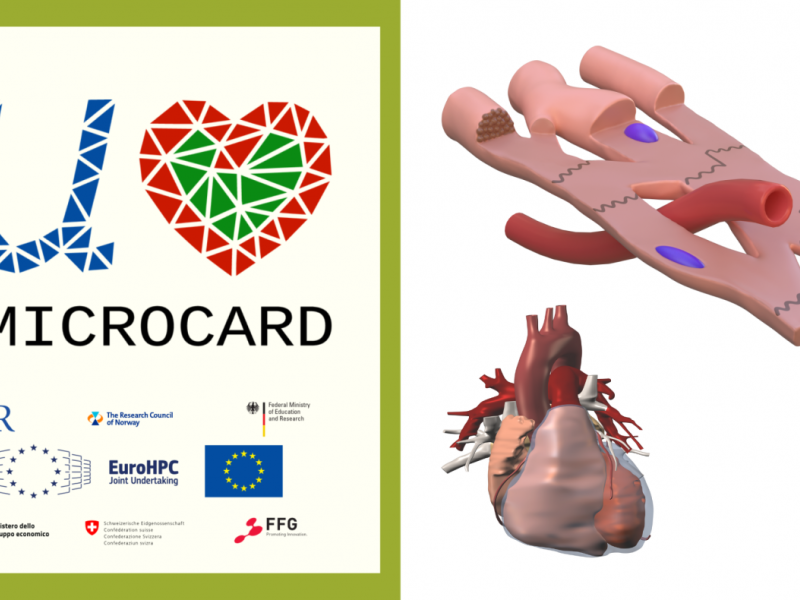April 2021 saw the birth of the new European Project MICROCARD, involving multidisciplinary experts from 10 partner centers, including ZIB research groups "Computational Anatomy and Physiology" and "Algorithms for Innovative Architectures", to create a new modeling platform that can simulate the heart cell by cell. Funded by the European Union, the MICROCARD project is a new opportunity to better understand and characterize cardiac arrhythmias.
A more sophisticated cardiac modeling
Cardiovascular diseases are the leading cause of death worldwide, and half of these death are due to cardiac arrhythmia, i.e., disorders of the electrical activation of the heart. These functional abnormalities are now widely studied with computer models, which are key elements in understanding cardiac arrhythmia. However, current computer models are not powerful enough to study arrhythmia mechanisms at the level of the cardiac cells. To overcome this limitation, the heart must be modeled cell by cell, which is a much harder and much larger problem than what is customary today.
A multidisciplinary project to develop a high-performance tool
In this context the European project MICROCARD is launched. It will develop software able to simulate the electrical activity of an entire heart, cell by cell, on ultra-powerful “Exascale” supercomputers that will be installed in Europe in the next few years. In order to do this, experts in mathematics, computer science, biophysics and biomedical engineering are collaborating to design algorithms tailored to the specific mathematical problem, the size of the computations, and the particular design of these future computers. The software will be tested with real-life problems in collaboration with experimental and clinical researchers at Liryc.
The platform will be accessible to many users, both in code and through a web interface, and adaptable to similar biological systems such as nerves for a wide range of applications.
"The MICROCARD project is a test case for advanced methods in computer simulation and is directly part of the fight against heart disease” says Mark Potse, research professor at the university of Bordeaux andScientific Coordinator of the project.
